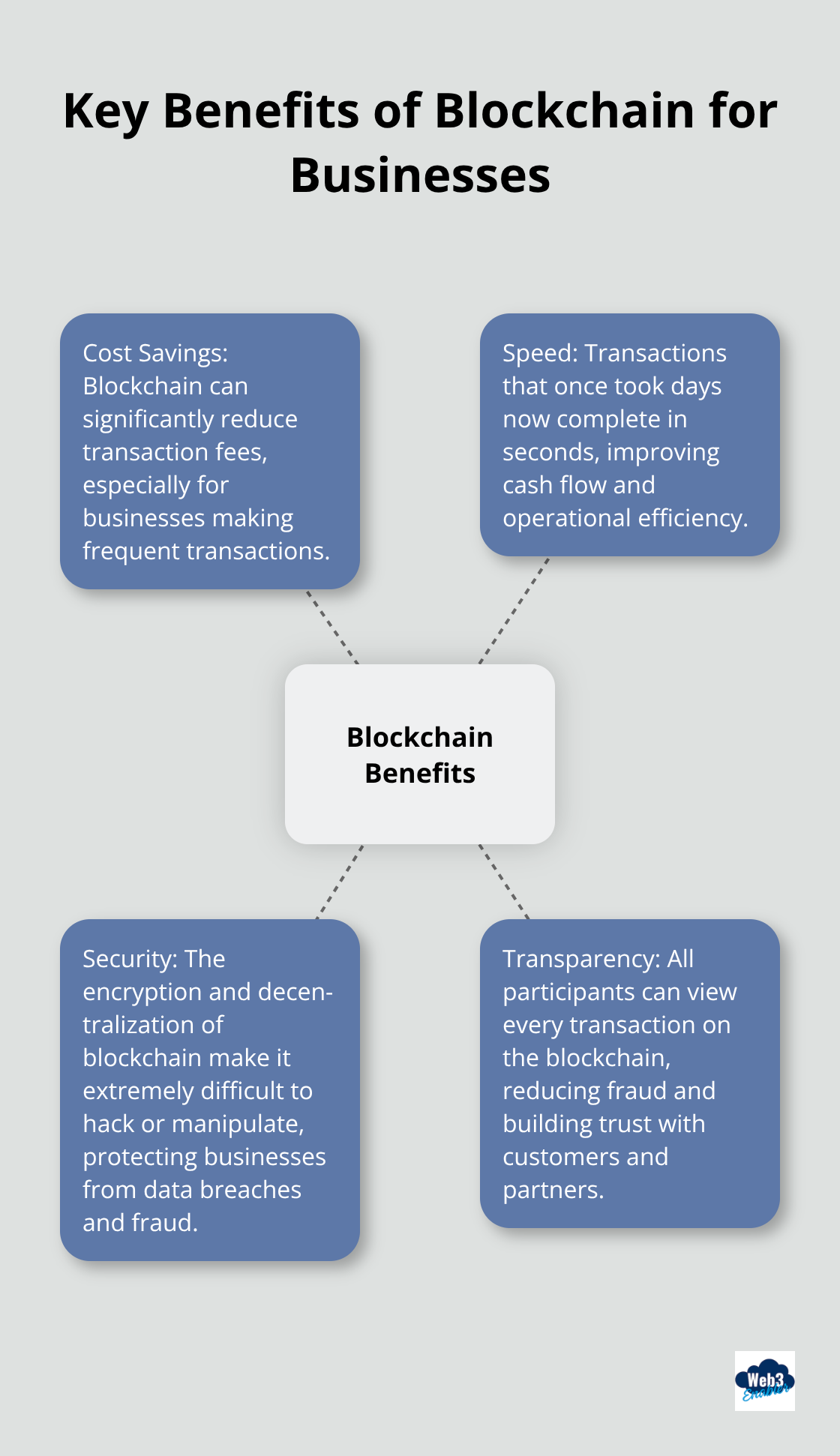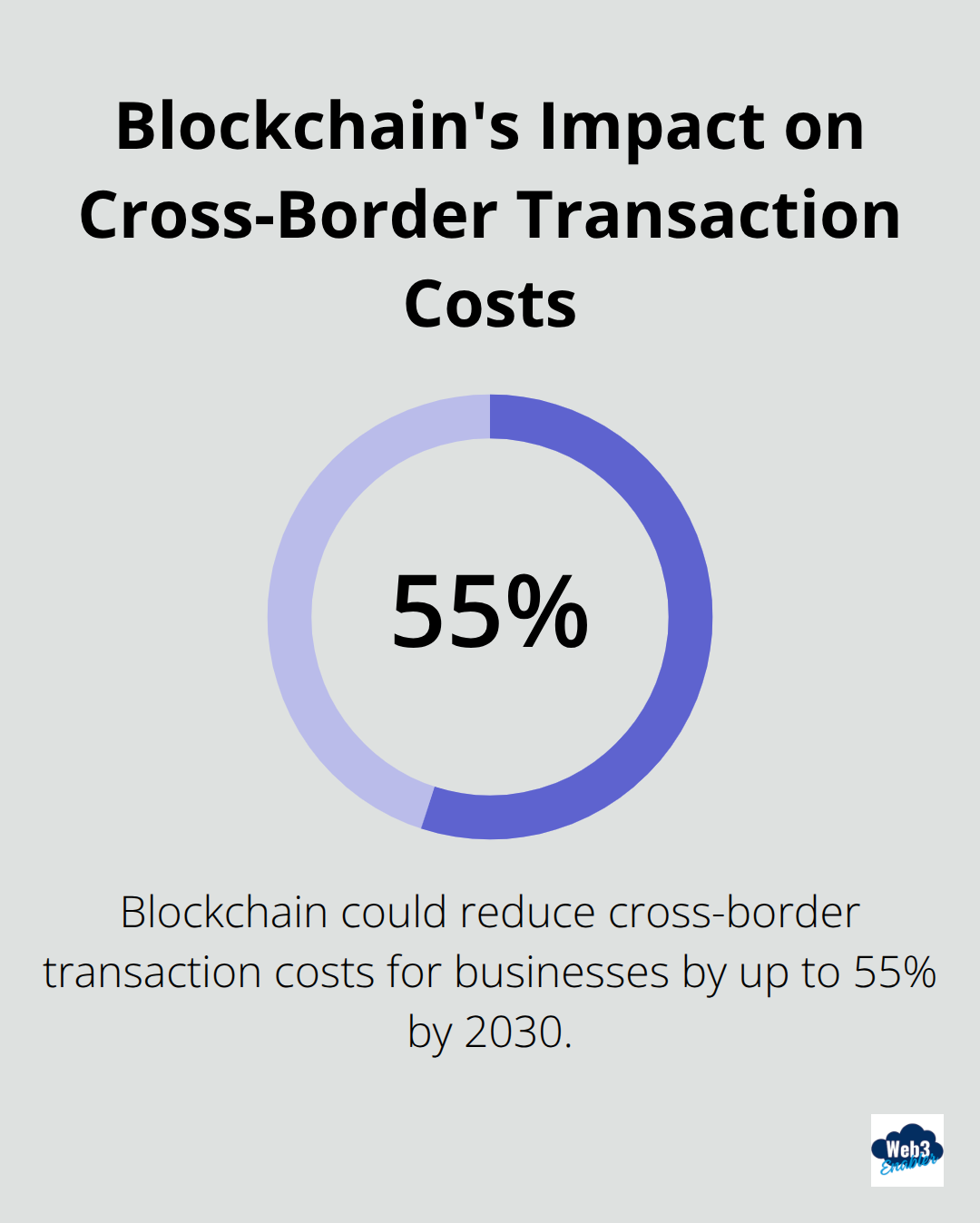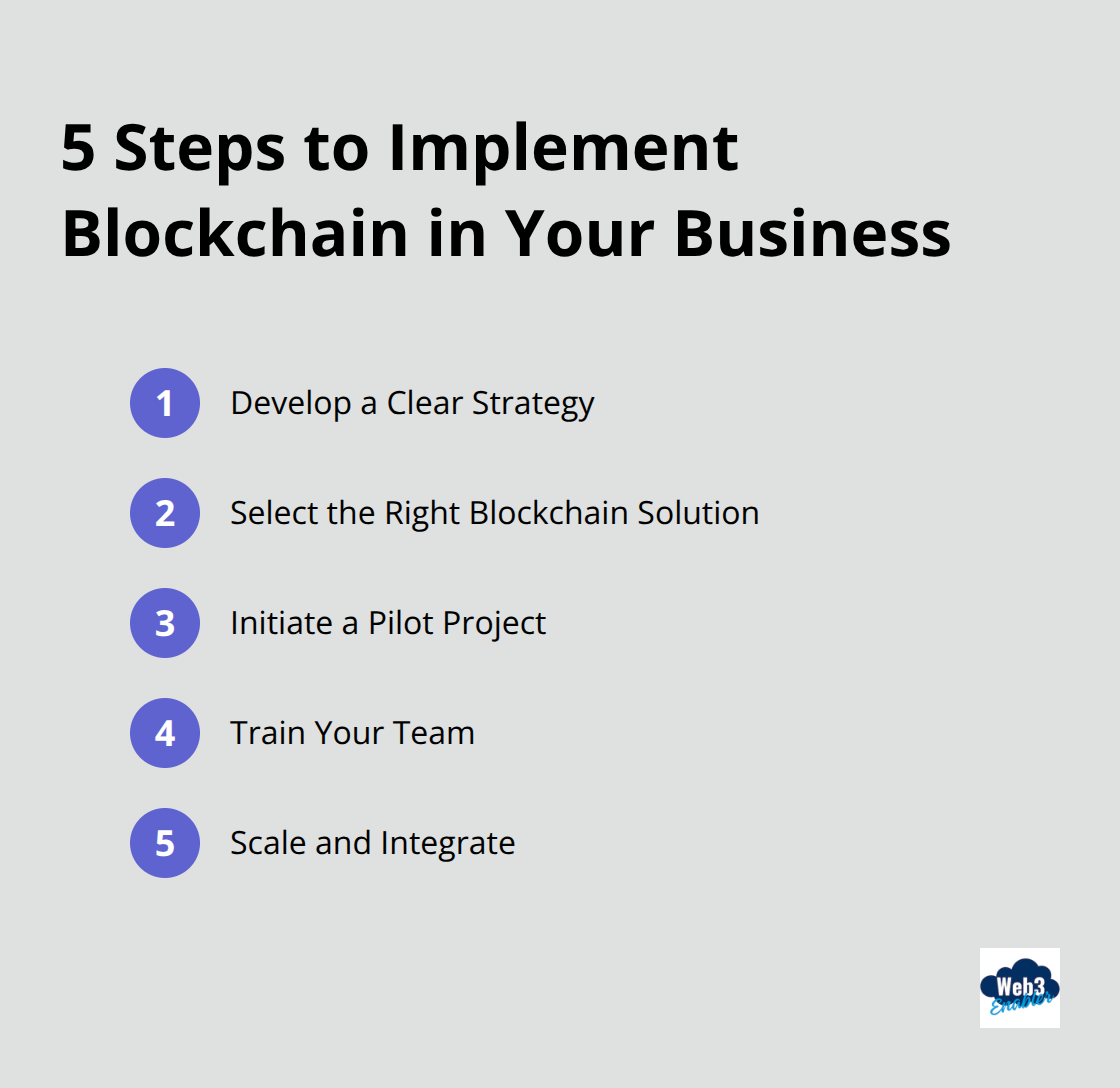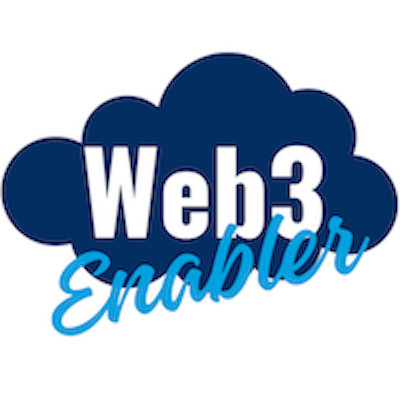Blockchain technology is revolutionizing the way businesses operate. At Web3 Enabler, we’ve seen firsthand how implementing blockchain in business can transform operations, enhance security, and boost efficiency.
This guide will walk you through the essentials of blockchain implementation, from understanding the technology to identifying use cases and taking practical steps to integrate it into your business processes.
What is Blockchain and How Can It Transform Your Business?
The Blockchain Revolution in Business
Blockchain eliminates the need for third-party verification-and, with it, their associated costs. This digital ledger records transactions across multiple computers, making alterations or hacks nearly impossible. The technology revolutionizes operations, especially in payment processing and financial management.
How Blockchain Functions in Business
Picture blockchain as a super-secure digital notebook. Each transaction adds a ‘block’ to this notebook. These blocks link to the ones before and after, creating a chain. A network of computers stores this chain, not just one central location.
For businesses, this translates to faster, cheaper, and more secure transactions. Gone are the days of waiting for payments to clear or paying high fees to intermediaries. Blockchain processes payments in minutes (not days) and at a fraction of the cost.
Decentralization and Transparency: The Cornerstones
Blockchain’s decentralized nature acts as its superpower. The absence of a single point of failure makes it incredibly resilient. This resilience proves crucial for businesses handling sensitive financial data or valuable assets.
Transparency stands as another key feature. All participants can view every transaction on the blockchain. This level of transparency significantly reduces fraud and builds trust with customers and partners.
Tangible Benefits for Your Bottom Line
Blockchain offers immediate and concrete benefits for businesses:
- Cost Savings: Blockchain can significantly reduce transaction fees. For businesses making frequent transactions, this translates to substantial savings.
- Speed: Transactions that once took days now complete in seconds. This rapid settlement improves cash flow and operational efficiency.
- Security: The encryption and decentralization of blockchain make it extremely difficult to hack or manipulate. This enhanced security protects your business from costly data breaches and fraud.

The Strategic Edge of Blockchain Implementation
Implementing blockchain streamlines operations, reduces costs, and builds trust with customers and partners. It’s not just a technology upgrade; it’s a strategic move that can give your business a competitive edge in an increasingly digital world.
As we move forward, let’s explore how to identify specific use cases for blockchain in your business operations. This next step will help you pinpoint where blockchain can make the most significant impact in your organization.
Where Can Blockchain Make the Biggest Impact?
Revolutionizing Financial Transactions
Blockchain technology offers transformative potential across various business functions. The most immediate and impactful use of blockchain lies in financial transactions. Traditional cross-border payments often incur high fees and take days to settle. Blockchain-based solutions slash these costs and timeframes dramatically.
A recent study by Juniper Research found that blockchain could reduce cross-border transaction costs for businesses by up to 55% by 2030. This translates to significant savings, especially for companies engaged in frequent international transactions.

Blockchain enables businesses to accept stablecoin payments and send global payments faster and cheaper. Companies can process transactions in minutes (instead of days), which improves cash flow and reduces the risk of currency fluctuations.
Enhancing Supply Chain Transparency
Supply chain management is another area ripe for blockchain disruption. The technology’s immutable ledger provides end-to-end visibility, reduces fraud, and improves traceability.
A 2023 Gartner report revealed that 50% of supply chain organizations will invest in applications that support artificial intelligence and advanced analytics capabilities (including blockchain) by 2024. This trend underscores the growing recognition of blockchain’s potential in supply chain optimization.
Blockchain implementation in your supply chain can help track products from origin to consumer, ensure authenticity, and streamline inventory management. This level of transparency not only improves operational efficiency but also builds trust with customers who increasingly value ethical and sustainable business practices.
Streamlining Data Management
Blockchain’s decentralized nature makes it an excellent tool for secure data sharing and management. This is particularly valuable in industries dealing with sensitive information, such as healthcare or finance.
According to IDC, worldwide spending on blockchain solutions will reach $19 billion by 2024. A significant portion of this investment is directed towards improving data management and sharing capabilities.
For businesses, this means enhanced data security, reduced risk of data breaches, and improved collaboration with partners and stakeholders. Blockchain integration can help seamlessly incorporate these capabilities into existing systems, ensuring companies stay ahead of the curve in data management.
Automating Business Processes
Blockchain technology enables the creation of smart contracts, which automatically execute when predefined conditions are met. This automation can streamline various business processes, from supply chain management to payroll processing.
Smart contracts reduce the need for intermediaries, minimize human error, and speed up transactions. They can be particularly useful in industries with complex contractual agreements, such as real estate or insurance.
The next step in implementing blockchain in your business involves assessing your specific needs and choosing the right platform. Let’s explore how to take these crucial steps to harness the power of blockchain technology for your organization.
How to Implement Blockchain in Your Business
Develop a Clear Strategy
Identify specific pain points in your business that blockchain can address. Does your company struggle with slow international payments? Blockchain speeds up transactions and reduces fees. Do you face supply chain visibility issues? Blockchain’s transparent ledger provides end-to-end tracking.
Set clear, measurable goals with your team. Try to reduce cross-border payment costs by 40% or cut supply chain tracking time by half. These concrete objectives will guide your implementation and help measure success.
Select the Right Blockchain Solution
Choosing the appropriate blockchain platform is essential. For businesses using Salesforce, Web3 Enabler offers seamless integration as the only native blockchain solution on the Salesforce AppExchange. This allows you to leverage blockchain’s benefits without overhauling your entire system.
For those not on Salesforce, evaluate options like Ethereum for smart contracts or Hyperledger for supply chain management. Consider factors like scalability, security, and compatibility with your existing tech stack.

Initiate a Pilot Project
Start small with a pilot project in a non-critical area of your business. This approach allows you to test the waters without risking core operations. If you’re a retailer, you might start by accepting stablecoin payments for a limited product line (or in a single store location).
Set a timeframe for your pilot-typically 3-6 months-and establish clear metrics for success. Monitor key performance indicators (KPIs) such as transaction speed, cost savings, and user adoption rates.
Train Your Team
Blockchain adoption requires a shift in mindset and skills. Invest in comprehensive training for your team. This isn’t just about technical know-how; it’s about understanding the strategic implications of blockchain for your business.
Partner with blockchain experts or consultants to provide hands-on training. Web3 Enabler offers custom implementations and support to ensure your team can leverage blockchain technology effectively.
Scale and Integrate
After your pilot proves successful, expand your blockchain implementation across more business processes. This might involve integrating blockchain with your existing ERP system, CRM, or financial software.
Scaling isn’t just about technology-it’s about change management. Communicate the benefits clearly to all stakeholders, from employees to customers and partners. Share success stories from your pilot to build enthusiasm and buy-in.
Final Thoughts
Implementing blockchain in business transforms operations, enhances security, and boosts efficiency. This technology slashes transaction costs, speeds up payments, and improves supply chain transparency. Strategic planning and execution are essential for successful blockchain implementation, which addresses unique business challenges and goals.
The future of business operations will increasingly rely on blockchain technology. Companies that adopt blockchain now will position themselves as leaders in their industries. Those who hesitate risk falling behind competitors who leverage this powerful tool.
Web3 Enabler offers comprehensive blockchain solutions tailored to your needs. As a native blockchain solution on the Salesforce AppExchange, we empower businesses to integrate blockchain seamlessly into existing workflows. The blockchain revolution has arrived, and the time to act is now.








